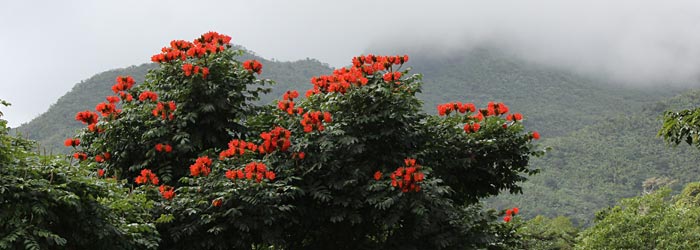
Photograph by Aimee Orndorf
The UWM Center for Latin American and Caribbean Studies’ (CLACS) foundation is interwoven with the creation of a Peace Corps training center at the University of Wisconsin-Milwaukee.
The Peace Corps formally requested that UWM devise a 10-week program, beginning in January 1963, to train volunteers to develop savings and loan operations in Peru. Additional contracts were received to train volunteers for work in rural cooperatives and agricultural extension in Panama and Colombia as well as Ecuador and Brazil.
In 1963 the Peace Corps entered into a long-term training contract that designated UWM as a year-round Peace Corps Training Center, one of only four universities so recognized and the only one that would undertake training for world regions. UWM was now able to make long-range plans and commitments for administration and instruction; significantly improve foreign language teaching laboratories and library resources; recruit foreign nationals from the host countries to enrich the programs; and arrange permanent housing for the trainees.
In the following years UWM’s Peace Corps partnership was extended to include federal funding of faculty research and overseas travel; development and publication of innovative foreign language intensive instructional materials; evaluation of training within the context of volunteer performance overseas; and training by UWM faculty in the host country. Over a six-year period, 44 Peace Corps projects (including Latin America) training over 1,500 volunteers, were completed.
The UWM Peace Corps relationship was highly beneficial to UWM. UWM and its faculty received national and international recognition for their strength in international studies. The Peace Corps connection facilitated faculty recruitment; improved instructional resources, especially in the foreign language area; enriched the student body (and faculty) with returning volunteers; and led directly to additional federal grants, such as one in 1965 to establish a Center for Latin America under the National Defense Education Act.
The Center has continued to receive federal funding which is now under Title VI of the Higher Education Act. In 1973, it formed a Title VI consortium in partnership with what is now the UW-Madison Latin American, Caribbean and Iberian Studies Program (LACIS). In 2000 the Center’s name was changed to the Center for Latin American and Caribbean Studies to better reflect the scope of faculty research and teaching expertise. In 2015 CLACS celebrated 50 years of continuous National Resource Center funding.
Edited from a history written by former CLACS staff member, Cheryle Darmek.